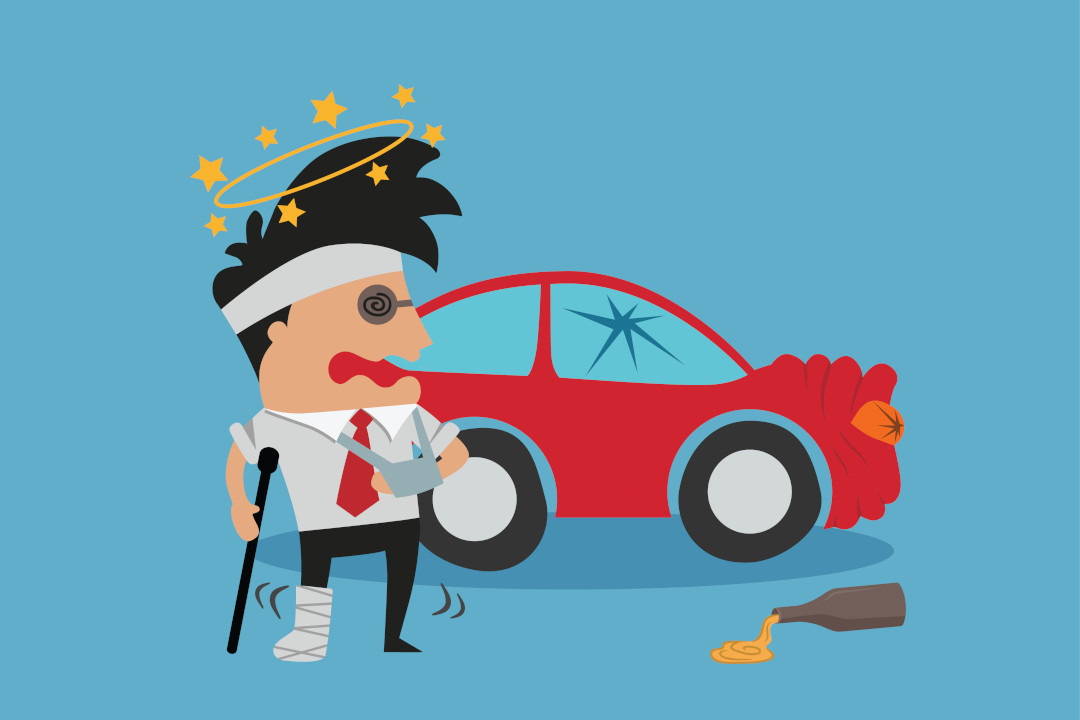
Am I My Brother’s Keeper? Question of Duty Raised in Drunk-Driving Lawsuit
The Appellate Division in its recently published decision, Diaz v. Reynoso, considered the issue of “whether a volunteer who assures police officers at a roadside stop of an apparently inebriated driver that he will take the driver and his car safely to a residence—but thereafter relinquishes the car to the driver before reaching the destination—can be civilly liable as a joint tortfeasor if the driver then collides with and injures another motorist.” 2021 WL 2197728, at *1 (App. Div. 2021).
In Diaz, a group of friends had been drinking at a private party in Fort Lee, followed by a visit to the El Tango Argentino Grill. The defendant Reynoso left the bar, and while heading home, turned the wrong way onto a one-way street. While traveling in the wrong direction, an officer performed a traffic stop, during which defendant Reynoso was not tested for sobriety but was asked by officers how he planned to get home and whether he felt capable of driving. Defendant Reynoso responded that he was able to drive but then offered to call someone to pick him up.
While the officers were still on scene, Reynoso’s friend and fellow partier, defendant Dominguez, arrived in another friend’s vehicle. Dominguez told the officers that he was okay to drive, and planned to drive Reynoso and Reynoso’s vehicle to Bergenfield. After the officers finished their paperwork, defendant Dominguez was provided the keys to defendant Reynoso’s vehicle, and the pair left the scene.
After leaving the scene, the pair reached a railroad crossing in Bergenfield, where defendant Dominguez stopped to allow a train to pass. While the two men were stopped, Reynoso began arguing with Dominguez and demanded that he be allowed to drive his vehicle. Eventually, Dominguez relented, got out of the vehicle, and got into a vehicle of another friend and fellow partier.
Thereafter, police were notified of a serious two-car accident. When officers arrived at the accident scene, they smelled alcohol on defendant Reynoso’s breath and found a flask within his vehicle. Defendant Reynoso’s Blood Alcohol Concentration (“BAC”) was tested several hours later at the hospital and found to be 0.244%, well over the 0.08% BAC legal limit.
The motorist whom defendant Reynoso’s vehicle had struck suffered serious injuries and thereafter filed a complaint in the Law Division, seeking damages for his injuries. Defendant Dominguez then moved under Rule 4:6-2(e) to dismiss the complaint for failure to state a claim. The focus of the motion was whether “Dominguez assumed a legal duty when he volunteered to the police that he would drive Reynoso and his car from the roadside stop and, if so, whether he breached that duty.” Diaz, supra, at *5. The trial court found no duty and dismissed the complaint as to Dominguez.
On appeal, the Appellate Division considered the matter of Estate of Narleski v. Gomes, 244 N.J. 199 (2020), where the New Jersey Supreme Court recognized a duty to the victim of a visibly intoxicated driver owed by a minor who had invited guests to drink at his parents’ home. There the Supreme Court directed judges to consider “the relationship of the parties, the nature of the attendant risk, the opportunity and ability to exercise care, and the public interest in the proposed solution.” Id. at 223 (quoting Hopkins v. Fox & Lazo Realtors, 132 N.J. 426, 439 (1993)).
The Appellate Division drew upon N.J.S.A. 39:4-50.22, otherwise known as “John’s Law.” Said statute provides that a person who undertakes to take an intoxicated driver away from the police can have potential civil and criminal liability for allowing the person to resume driving. The police are to provide the person with a written statement advising him/her of the same. However, the Appellate Division recognized that John’s Law was not applicable, as defendant Reynoso was neither tested nor arrested, but that the statute was nevertheless instructive of the high public interest in protecting people from the dangers of drunk driving.
The court then turned to Section 41 of the Third Restatement, which imposes a duty to third parties upon an actor who takes control of another by virtue of a “special relationship.” The Appellate Division again wrestled with the applicability of Section 41 of the Third Restatement and concluded: “[w]hether or not Section 41 literally applies, it adds to the more general notion that a volunteer who commits to law enforcement that he or she will take charge of an inebriated driver can be held liable for willingly abandoning that commitment.” Diaz, supra at *11.
Ultimately, the Appellate Division reversed and remanded the trial court, directing that additional fact-determinations be made. However, the court made clear that “[t]he core message of this opinion can be bluntly stated: If you promise the police that you will take charge of a drunk driver and his or her car, you will be counted on to do so. You can be held liable if you don’t.” Id. at *14.
Conclusion
If you have been injured as a result of a drunk driver and wish to discuss your legal options, Farrell & Thurman, P.C., offers a variety of convenient ways to schedule a free, no-pressure consultation. You may do so directly on our website (Schedule A Consult), via phone (609-924-1115), or by email (Contact Us).
